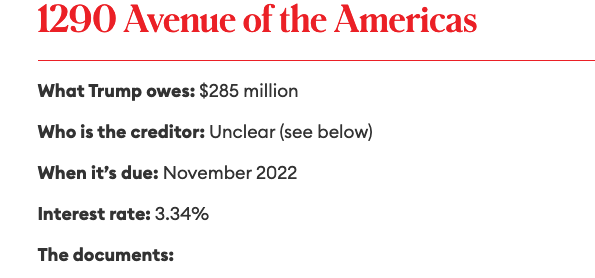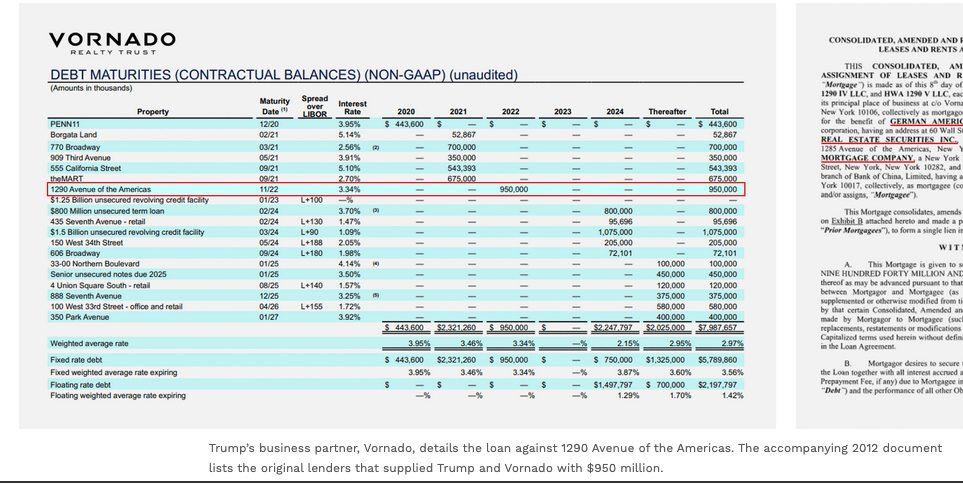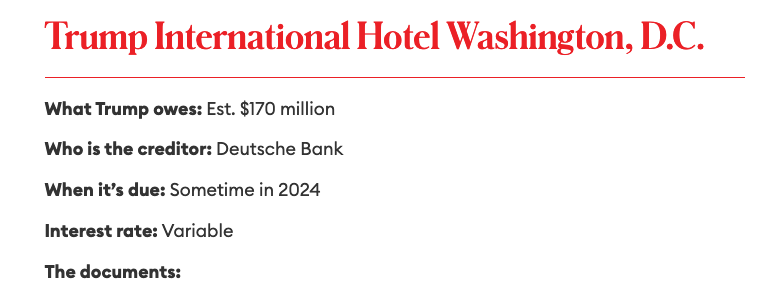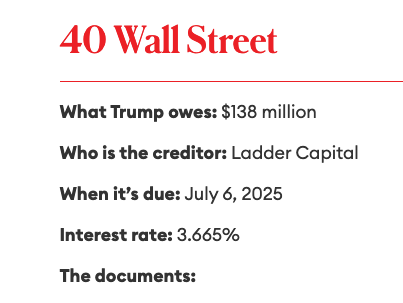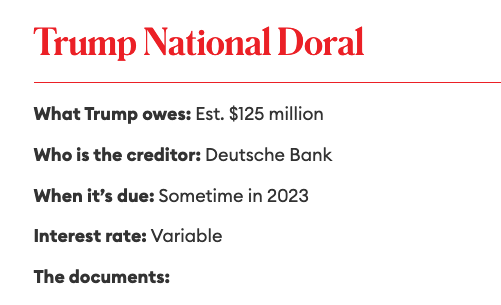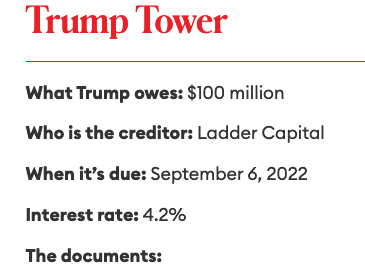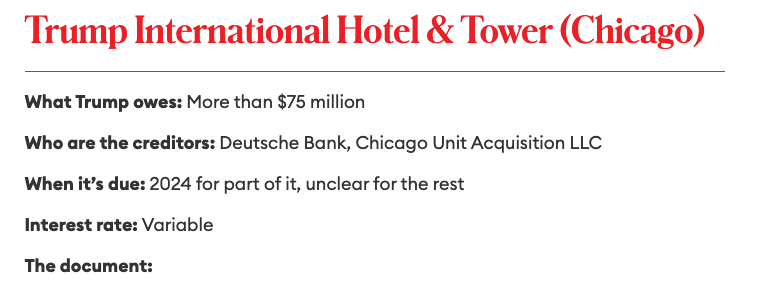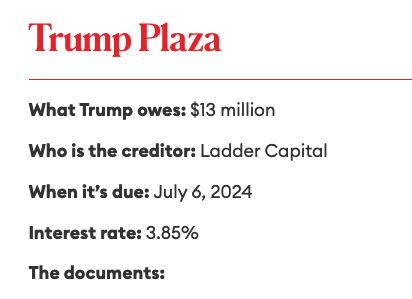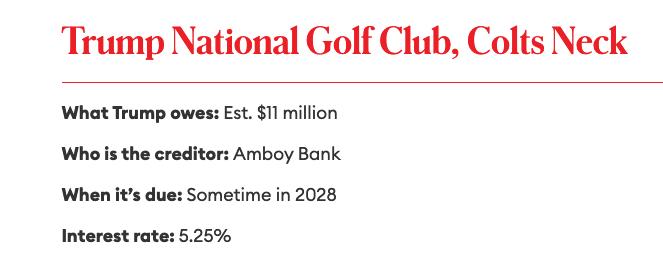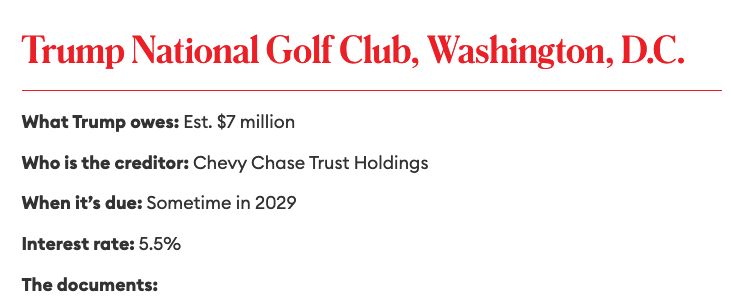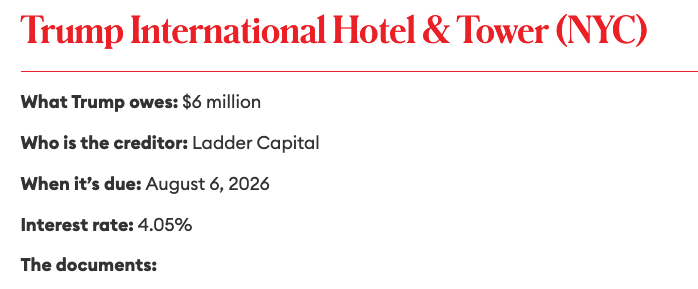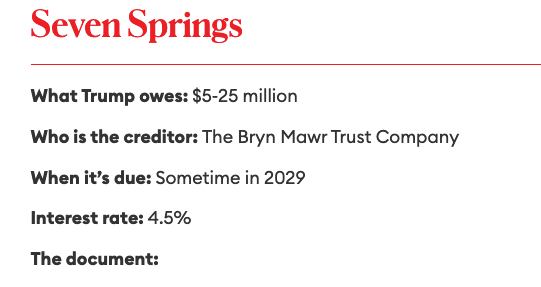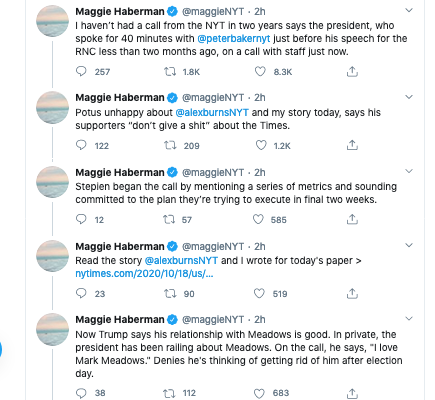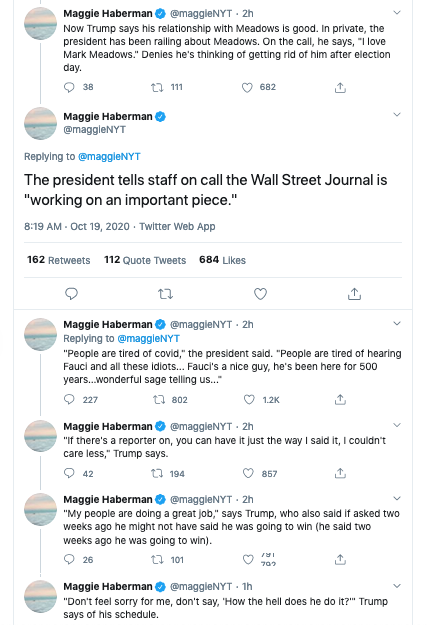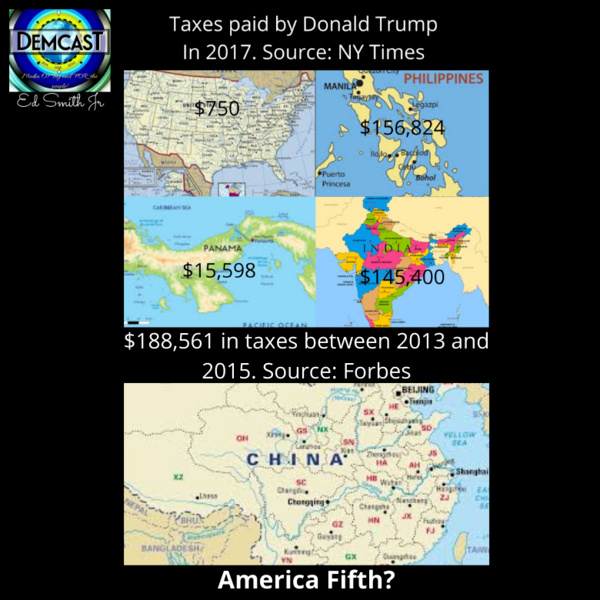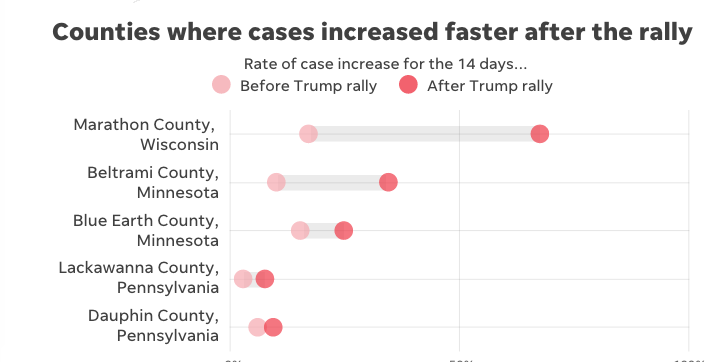Long view on T’s presidency and AG Barr who helped shape this despotic administration. From historian Sean Wilentz. Worth a read
Trump and Barr have made the election into a test of democracy. If the United States is to survive as it has existed since 1787, Trump must not simply be defeated, but repudiated.
The Sedition of Donald Trump
Historian Sean Wilentz says the president and his chief accomplice Attorney General Bill Barr’s subversions of democracy have taken America to the very brink
Before Donald Trump got himself infected with the coronavirus, he had firmly secured his place as the worst president in American history. Now, after mocking Joe Biden at their first debate for mask wearing, Trump has proved to be a reckless superspreader, risking the lives of donors at a New Jersey fundraiser and the Secret Service agents sworn to protect him by demanding a bizarre motorcade photo op outside of Walter Reed hospital. One aide and associate after another of those exposed to him — and his wife — have fallen victim to the virus. Trump’s coronavirus policy, or rather the absence of it, had already been shown to have morbid consequences. Herman Cain, the former pizza king, could testify about that had he not died due to complications from the virus after attending Trump’s ill-fated Tulsa rally crammed with shouting, barefaced fanatics.
After demanding to be released from the hospital, Trump put on a display worthy of Charlie Chaplin in The Great Dictator, except that it wasn’t a parody. Clearly struggling for breath, the president first told the nation that Covid-19 was no big deal — “Don’t be afraid” — playing the he-man while spewing the deadly virus. The next day, Trump tweeted that there would be no further talk about a bill to stimulate the economy until after the election. The New York Stock Exchange averages immediately collapsed. But this unhinged performance is in keeping with the president’s attitude toward the contagion from the beginning, a toxic mixture of denial and presumed invulnerability.
Since Covid hit, Trump’s refusal to call the pandemic a siren-howling public-health emergency, coupled with his know-nothing disparagement of medical science, has led directly to the soaring death count, now well over 210,000 Americans, and the worst economic crisis since the Great Depression. The escalating number of fatalities of Americans from the coronavirus outstrips the number of U.S. combat deaths in World War I, the Korean War, the Vietnam War, and every war since combined. However Trump fares with the virus, whether he suffers its symptoms for months or recovers, his legacy is already written in stone as one of catastrophic and lethal failure.
That’s for starters. Trump’s racist rhetoric and shout-outs to white nationalists have cleaved the nation in two, driving political polarization with an intensity not seen since the Civil War. His explicit encouragement of violence and armed demonstrations has menaced the rule of law. His brazen attempt to shake down the president of Ukraine (“Do us a favor, though”), in order to manufacture dirt against his chief political opponent — the event that triggered Trump’s impeachment — almost surely would have led to his removal from office but for the cynicism, cowardice, and partisanship of the Senate Republican majority. His amply documented obstruction of justice in connection with the Russia investigation — 10 offenses, according to the Mueller report; the corruption of his office to enrich himself and his family in violation of the Constitution’s emoluments clause; his purposeful sabotage of the First Amendment by demonizing the free press as enemies of the people — all this and more add up to not just the worst performance of any American president, but the most subversive conduct since Jefferson Davis, who was not a president of the United States.
Trump’s subversion is an immediate existential crisis for American democracy, the worst since the Civil War. He has deliberately tried to discredit and delegitimize democracy itself. By repeatedly trashing the upcoming election as rigged and corrupt, raising baseless wild charges about voting by mail, Trump has poisoned the political wells. By instructing the neo-fascist and anti-Semitic Proud Boys to “stand back” and “stand by,” and instructing his goon squads to descend on the polls to intimidate voters, he has openly called for disrupting the election. By refusing to pledge to a peaceful transition of power should he lose the election, Trump has revealed his plan for a coup d’etat, with the connivance and unswerving support of the Republican Party.
Before Trump fell ill, he openly disclosed his plot, what looked like the last option left to him to snatch a victory despite almost certain defeat. Claiming that the Democrats were out to steal the election and getting his frenzied supporters to turn out, vote, and prevent others from voting, Trump prepared the hardcore MAGA base to unleash orchestrated chaos in the streets in case he lost, a standard tactic in banana republics. The obscene scramble to replace Justice Ruth Bader Ginsburg on the Supreme Court — a cynical move to solidify a right-wing majority on the court — was, again by Trump’s own admission, an equally important element in his mind for the projected coup. Should Trump fall short, as current polls show him doing, then his campaign, against the backdrop of civil chaos, would try and throw the election into either the House of Representatives, where the GOP controls the majority of states and thus the outcome, or the courts, where they can expect that, eventually, the Supreme Court, packed with his appointees and other right-wingers, will simply declare Trump the winner. Complicit GOP leaders and officeholders would absolve themselves of responsibility by throwing up their hands and saying the law, then, must be followed, knowing full well the final decision had been politically preordained. The Republican theft of the presidency in 2000 would look like a dry run for the overthrow of American democracy in 2020.
The president’s illness has not put that strategy on hold, only made it more urgent. His wild performance in the first debate — which repelled voters who saw him unfiltered for 90 minutes and was sufficient to double Biden’s lead — only makes Trump more dependent than ever on undemocratic tactics. The situation around the election is so volatile that no projection appears too dire. But when historians look back on the 2020 election, it will be important for them to recognize that Trump’s plot was taking shape before the virus intervened. This is not lurid speculation. An earlier plan, which was exposed, involved smearing Biden, and it provoked Trump’s impeachment. Since then, Trump has developed a conscious and deliberate strategy to discredit and overturn the popular vote in the election and even the Electoral College in order to keep himself in power.
Trump may never have thought he could actually pull this off. If the scheme faltered, he might fall back on using a coup threat as an opening bid in a negotiation for a pardon for all of his federal crimes, as well as his crimes against New York state law. The exposure of his tax returns by The New York Times had shown that he paid virtually no taxes and is a terrible businessman. More important, though, it showed that even if Trump recovers, he may well be in profound legal trouble, along with members of his family, potentially facing charges of bank fraud, wire fraud, conspiracy, and much more. If so, as seems likely, Trump has always known he’s guilty, and he knows that he and Ivanka and Don Jr. and Eric might also end up in prison. When the virus struck, he was already a truly desperate man, facing not simply an election but also his own existential crisis, one just as severe as the one afflicting the nation. From his bed in the Walter Reed Medical Center, even suffering symptoms his chief of staff called “concerning,” Trump was spreading lies and sowing chaos. So, as we hurtle toward Election Day, the question remains: How did we get to this point? How has Donald Trump managed to take the nation to the brink, holding on to power despite his manifest abuses of the public trust?
First, there is his base, which has become a true cult worshipping its Dear Leader, whipped up by an elaborate propaganda apparatus of Fox News, right-wing talk radio, and conspiracy-spouting websites. Fear of that fevered base, inhabiting its own media bubble, and the immense power of unregulated dark money from special interests, has turned whatever is left of the national Republican Party into a subsidiary of Trump Inc., with the Senate GOP majority ceding Trump enormous power as well as a firewall against congressional checks and balances. When talking about the Republicans, though, it’s important not to forget the long-standing party fixtures outside of Congress that have also done their utmost to secure Trump’s power. Of those insider subversives, none has been more essential to protecting, guiding, and sustaining Trump’s regime — and his election plot — than Attorney General William P. Barr.
When Barr replaced the utterly unqualified lunkhead serving as acting attorney general, Matthew Whitaker, in February 2019, the sigh of relief from Washington’s quarters of conventional wisdom was almost audible. Whitaker’s predecessor, Attorney General Jeff Sessions, had infuriated Trump by recusing himself from investigating possible Russian interference in the 2016 election. Sessions had in turn acquiesced in the appointment of a special counsel, former FBI director Robert Mueller. As soon as the 2018 midterms were done, Trump fired Sessions and appointed Whitaker as his temporary replacement. But eventually Trump picked Barr — and the choice may have appeared to be a nod to the old establishment.
Barr had no apparent ties to Trump, for whom personal loyalty is everything; and he had previously served as President George H.W. Bush’s attorney general. The elder Bush, who had just died, had not only refused to support Trump’s election, but actually voted for Hillary Clinton. So Trump choosing Barr didn’t seem entirely to add up, if you thought of him as a traditional Bush man.
Barr seemed to be what is approvingly called in Washington an institutionalist, meaning in this case the type of conventional GOP operator who privately loathed Trump. What most observers had forgotten is that back in 1992, Barr had helped successfully shut down once and for all the investigation of the Iran-Contra scandal that for a time had threatened to topple Ronald Reagan and to upset George H.W. Bush. Now Barr was about to go to full-scale war in the service of Donald Trump — and his own ideas about America as a degenerate liberal culture in need of a right-wing judiciary and an autocratic president.
Inside of two years, Barr has become the most aggressively political attorney general in American history. Of course, there have been rotten attorneys general before: Richard Nixon’s consigliere, the taciturn John Mitchell, a convicted felon in the Watergate affair; Ronald Reagan’s ethically challenged California buddy Ed Meese, who resigned under a cloud amid the Wedtech scandal. And before them there was Harry Daughtery, Warren G. Harding’s attorney general, boss of the “Ohio Gang,” who was implicated in the Teapot Dome scandal.
Since his appointment, Barr has rushed forward as Trump’s public savior, making havoc of the rule of law he claims to revere and using the full weight of his office to deflect trouble and advance Trump’s political fortunes. Barr deliberately thwarted potential checks and balances on the president’s corruption, inflamed the civil strife on which Trump feeds, and both launched and cooperated with investigations of dedicated public officials for maximum political effect on the eve of the election. If Trump grabs another term, he will have Barr to thank possibly more than anyone. And if that happens, what’s left of the Justice Department as an institution above partisan politics, serving the public trust, will almost certainly and completely collapse. A survey of the damage done so far makes that clear.
Barr’s first outrage was to scuttle the Mueller report. Exploiting his authority under the special-counsel law, Barr held on to the report for a month, preventing the press and the public from reading it, while he and his staff heavily redacted the two volumes of official findings. It was the old strategy of redact-and-delay that Nixon’s men deployed to try squelching the Watergate investigation by hiding the material that proved Nixon’s guilt. The strategy hadn’t worked then, but Barr would make it work now. In defense of Trump, Barr was acting out Nixon’s revenge. He issued a statement effectively exonerating the president before releasing the heavily redacted yet still very damning report a few weeks later. The delaying tactic had its desired effect, and the damaging details of Trump’s extensive attempts to obstruct justice and a clear willingness to play ball with foreign operatives to win an election were muted. If anyone had been able to do for Nixon what Barr did for Trump, Nixon’s crimes would never have been exposed.
Barr has effectively served as Trump’s mouthpiece, repackaging White House talking points with an air of blunt authority, dismissing any and all serious charges against the president as “bogus,” and, in true Trumpian fashion, turning the tables and accusing the accusers of fabricating accusations against Trump and therefore committing crimes against the American people. Not finished after having gotten Trump off the hook for the Mueller report’s findings, Barr has also used the power of the Justice Department to try to eradicate every trace of the president’s Russian scandal.
First up was the case of Michael Flynn, the retired lieutenant general and rabid Trump supporter who Trump tapped to be his national security adviser. In the interim between the election and the inauguration, Flynn had had improper contacts with Russia’s ambassador to the U.S., Sergey Kislyak, in which they discussed possible relief of sanctions imposed on the Russians by the Obama administration. Exposure of the contacts led Flynn to abruptly resign, and in time he pleaded guilty to lying to the FBI twice, a federal crime. But Trump was unrelenting in trying to get Flynn in the clear.
This past May, it looked as if Trump just might have to pardon Flynn, which would have caused political blowback. Barr, though, did the job for him by simply having the Justice Department drop the charges, over the stern objections of a federal judge, who happened to be a Reagan appointee. Another former federal judge, brought in to review the matter, called it “a corrupt and politically motivated favor” that was “unworthy of our justice system.”
Barr’s role in the case of Roger Stone, Trump’s longtime dirty trickster, crony, and connection to Wikileaks — and through that to Russian military hacking operations, according to U.S. intelligence — was even messier. Early in 2020, Barr, goaded by the president, personally intervened to ensure that Stone — convicted of seven felony counts in connection with the 2016 campaign — received little or no jail time. The affair shook the Department of Justice to its core. The entire federal prosecution team on the case quit in protest, and more than 2,000 former department officials called for Barr’s resignation. Reportedly, Barr balked at an outright commutation of Stone’s sentence, but he had set the stage. Trump then commuted Stone’s sentence.
Meanwhile, Barr pushed ahead with continuing efforts to criminalize the intelligence community’s investigation into Russian interference in the 2016 election. In May 2019, a month after the release of the blacked-out Mueller report, Barr announced he had appointed U.S. Attorney for Connecticut John Durham as special prosecutor to investigate the FBI’s probe into the Trump-Russia connection. The Durham investigation amounted to putting Trump’s conspiracy theories into action, placing “deep state” villains in the inquiry’s crosshairs. The probe was going to be payback time.
At around the same time as the Flynn and Stone stories were breaking, Barr summarily removed the U.S. attorney for the powerful and famously independent Southern District of New York, Geoffrey Berman. A Republican, named by Trump to the position on an interim basis in 2018, and a former associate of Trump’s fixer Rudy Giuliani, Berman had proved dangerously professional and unreliable to Trump, beginning with the investigation into and flipping of Michael Cohen, Trump’s former personal attorney.
The plan was to fire Berman, who Barr had already told aides needed to be reined in, and have Trump’s hand-picked nominee for the post step in right away. Initially, Barr lied to the press, saying that Berman had resigned his post. Speculation about what the rush was all about focused immediately on pending Southern District investigations of Trump’s friends and associates, including the funding of the inaugural committee and financial dealings with the Turkish Halkbank, as well as two close and shady associates of Giuliani in his Ukraine capers indicted for fraud. In the end, Berman put up a fight and, though he finally left his job, his next-in-line, and not Trump’s favorite, took over. The plan was foiled, but Berman was still purged.
The historic events of the late spring and summer opened up new fronts and new opportunities for Trump and his attorney general to begin a great campaign for law and order. After George Floyd was killed on May 25th, mass protests against racial injustice swept the country. Three days later, the death toll in the United States from the Covid-19 pandemic surpassed 100,000, prompting the Centers for Disease Control to redouble its public appeals for social distancing and wearing face masks. At that very moment, Biden’s lead over Trump in national polls, noticeably widened.
Trump’s response to the pandemic was to belittle the science and to encourage resistance to the public-health appeals for masks, social distancing, and lockdowns. Then he sought to distract attention from the pandemic by casting the Black Lives Matter demonstrations as the work of lawless violent radicals and fomenting a Nixon-style “law and order” panic campaign. Third, he tried to throw the entire election into disarray with groundless claims that voting by mail would be subject to massive fraud.
Barr not only followed Trump every step of the way, but often led the way. He set the Justice Department in conflict with public-health officials. In April, as some states began relaxing public-health measures, he directed the nation’s federal prosecutors to look out for any state and local anti-Covid -ordinance that “crosses the line” into alleged infringements of constitutional rights, and to “address that overreach in federal court.” He called proposals for a national lockdown the worst abuse of civil liberties in all of American history, apart from slavery.
There has been no more steadfast peddler of falsehoods about mail-in voting than the attorney general. In September, he declared flatly that “there’s no more secret vote, there’s no secret vote,” with mailed ballots, adding with dark emphasis that “the government and the people involved can find out and know how you voted.” That kind of talk is typical from a barroom loudmouth, not an attorney general of the United States. In fact, there are numerous safeguards to mail-in voting to protect voters’ privacy. Those safeguards are familiar to voters in the several states who have adopted mail-in voting for years. They are of course familiar to the attorney general, who has also voted by mail.
But Barr’s handling of the Black Lives Matter demonstrations was his most daring authoritarian intervention. The battle of Lafayette Square on June 1st will stand in Trump administration history as the most notorious incident, when Barr ordered the forceful clearing of peaceful demonstrators across from the White House, after which he marched with Trump over to St. John’s Church, where the president held aloft a Bible fetched from Ivanka’s purse for a publicity shot. More than 1,250 former Justice Department workers called for an internal investigation of the attorney general. Barr brushed off the criticisms by pointing to Black Lives Matter demonstrations that had turned violent, claiming the crowd had been warned three times to depart, warnings that video showed were inaudible, and that tear gas had not been used on the crowd, which was false.
That infamous display of power fit a larger pattern of incitement on Barr’s part, making a tense situation worse with unnecessary force and inflammatory rhetoric. In Portland, Oregon, for example, where there were unquestionably violent protests that called for arrests, the Justice Department upped the ante by sending in armed, unidentified federal officers to roam the city’s downtown, shoving demonstrators into unmarked cars, police-state style. Later, Barr pressed federal prosecutors to charge demonstrators with sedition, a major crime against the United States rarely if ever mentioned in peacetime.
Barr’s crackdown was intended to distract from Trump’s dismal record confronting the pandemic, all while Trump encouraged menacing bands of armed right-wingers. Trump’s summons to militias began long before his callout to the Proud Boys. “Liberate Michigan,” the president tweeted in all caps in April, when rifle-toting MAGA troops shut down the state’s Legislature over Michigan’s Covid restrictions.
These two words were seditious in the most exact sense, a president instructing armed American citizens to attack their own government. His acts amounted to an assault by the president himself on the Constitution’s clause that guarantees states “a Republican Form of Government,” including against “domestic violence.” And chillingly, they may well have encouraged, if not incited, the right-wing militia plot, now revealed by the FBI, to kidnap Michigan’s governor Gretchen Whitmer, storm the state capitol, and overthrow the state government. (In character, Trump the inflamer reacted to news of the plot by attacking Whitmer as an ingrate who has done “a terrible job” on Covid.) Yet Trump’s April tweet — perhaps the most literally subversive utterance by any president in our history — has proven to be but a forecast of the grander subversion taking place right now.
How, then, did William Barr, the respected conservative lawyer and public servant, come to this abysmal bottom? Like so many Republicans who have come into Trump’s orbit, he has been seduced into loyalty, but that barely scratches the surface of his motives. Barr has not become captive to Trump’s agenda; like other longtime Republicans, Barr has an agenda of his own. Trump uses Barr, just as Barr uses Trump. Barr’s agenda is a very distinct agenda, nothing so crass as merely more tax cuts for the rich, or so mundane as “America First.” It is a vision of the United States as a Christian nation — a certain kind of Christian nation with a certain kind of Christianity.
There have been several strong articles about Barr’s emergence as a right-wing enforcer. One of the best, by Dana Milbank of The Washington Post, reports on Barr’s youth in Manhattan as a boyhood tormentor, described by one schoolmate as a “classic bully,” “power abuser,” and “sadistic kid,” with a special hatred for liberal causes and a “vicious fixation on my little Jewish ‘commie’ ass.” Milbank notes that research shows childhood bullies are likely to become adult bullies, which may help explain not just Barr’s current performance but also his and Trump’s mutual admiration. It may also account for Barr’s deepening adulation for Trump as a “statesmanlike” leader — this with regard to the White House’s raw politicized handling of the pandemic — coupled with his accusations that Trump’s critics have launched a “jihad” against him, equating political opponents to Islamic terrorists. Through Barr, Trump gets the kind of competent legal muscle that Giuliani never could give him, while Barr gets to be the all-important henchman, operating as the power behind the throne.
But Barr has ideas as well as a temperament, described recently in The Atlantic by Donald Ayer, a former U.S. attorney under George H.W. Bush. After closely examining the attorney general’s 30-year paper trail, Ayer finds that Barr holds two primary propositions to be at the heart of everything. The first is that the founders established the United States as a religious and more specifically Christian nation, dedicated to, in Barr’s words, “a transcendent moral order with objective standards of right and wrong,” divulged by God through his church. The second is that contrary to what Barr calls the “civics-class version” of the Constitution, the founders, by resolving in favor of a single executive officer, invested the president with extremely broad authority.
According to Barr, “Judeo-Christian” government prevailed in this country until the tumult of the 1960s — which to Barr amounted to a wave of soul-destroying licentiousness — when, allied with unremitting attacks on sacrosanct presidential power, the immoral left began toppling the founders’ design. The enemy — a militant secularism, rooted not in the word of God but in the humanism of the Renaissance and the rationalism of the Enlightenment — has unleashed moral chaos. Simultaneously, Barr writes, “a steady grinding down of the executive branch’s authority, that accelerated after Watergate” has reduced the presidency to a wisp of what the founders envisaged. Trump — the candidate who paid hush money to a porn star — may not be a perfect vessel, but he stands strong against the immoralists, the Democrats, who Barr says want to create a “progressive utopia” stripped of God’s blessings. For Barr this nightmare scenario must be stopped at all costs.
To a historian, a lot of this is crackpot stuff. The founders, although for the most part self-designated Christians, were devotees of precisely the secular rationalism and humanism that Barr calls the root of all evil. Although some were likely to invoke God’s grace and even speak in providential terms, this had nothing to do with founding a Christian nation. Had they wanted that, they wouldn’t have framed and ratified a godless Constitution. Likewise, Barr’s account of the presidency is perfectly wrong: Far from a powerful and omnipotent presidency falling into ruin in the 1960s, the presidency, with a few major exceptions like Abraham Lincoln, was fairly weak until Theodore Roosevelt took the job, and the greatest expansion of presidential authority came not with the founding but in the 20th and 21st centuries and the advent of the imperial presidency.
Whatever Barr is driving at has little or nothing to do with what the American Revolution established, nor with any kind of government this nation has ever known. It more closely resembles a theocracy, overseen by a president who more closely resembles an elected monarch. Trump, for his part, would prefer a kind of Putin-like kleptocracy. Barr’s vision, if you can call it that, is an Americanized version of something more akin to Generalissimo Francisco Franco’s Spain. This is a counterrevolutionary doctrine and it is now in command of the Department of Justice, aiming for much, much more power. Its first order of business is to return Donald Trump to the White House by any means necessary.
After Trump fell ill, Barr, who himself is quarantining as of press time, continued the plot to cast doubt on the popular vote, to hype the bogus Durham investigation, and to proclaim the election one between orderly Americanism and the massive threat of Antifa anarchy. This is Barr’s last chance to shape an authoritarian presidency, a federal bench and Supreme Court that will be a right-wing conservative bastion for a generation to come, and a very different country.
Trump and Barr have made the election into a test of democracy. If the United States is to survive as it has existed since 1787, Trump must not simply be defeated, but repudiated. There can be no forgiveness in the name of some fanciful national unity for all the criminal carnage that Trump has done, before as well as during his presidency. Failure to attack the roots of a far greater seditious threat more than a century and a half ago, in the form of the Confederate States of America, has led directly to our current traumas, allowing a bacillus of racism and authoritarianism to survive, mutate, and reinfect our politics. That bacillus is now virulent as Trumpism.
Trump and his accomplices have not merely betrayed American principles. Some of our previous presidents and political leaders have done that. But Trump, with his threats and his rhetoric, his self-dealing and his contempt for the rule of law, has crossed a very dangerous line. Should the American majority prevail, and should he survive, Trump must be held to full account at the bar of history as well as the bar of justice. Should the majority fail, the American experiment in free government will be so badly damaged as to be unrecognizable.


